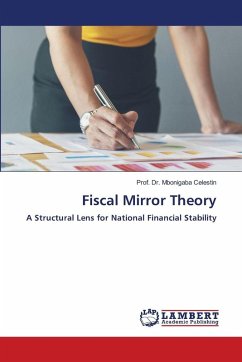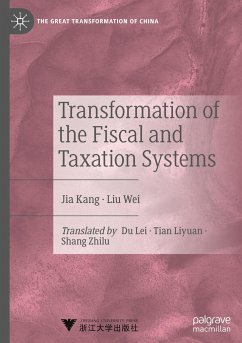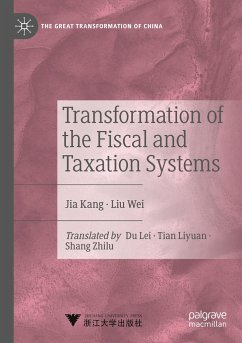
Fiscal Mirror Theory
A Structural Lens for National Financial Stability
Versandkostenfrei!
Versandfertig in 6-10 Tagen
64,99 €
inkl. MwSt.

PAYBACK Punkte
32 °P sammeln!
Fiscal Mirror Theory is a visionary framework redefining fiscal governance by viewing taxation, expenditure, and financial reporting as reflective tools of economic health and ethical integrity. It addresses global challenges like debt crises, institutional weakness, and fiscal opacity by promoting transparency, accountability, and resilience. The book introduces four models-TaxMirror, ExpenMirror, ReportMirror, and InstiShield-each linking fiscal mechanisms to national stability. Across eleven parts, it explores digital taxation, participatory budgeting, AI-driven dashboards, and ethical stan...
Fiscal Mirror Theory is a visionary framework redefining fiscal governance by viewing taxation, expenditure, and financial reporting as reflective tools of economic health and ethical integrity. It addresses global challenges like debt crises, institutional weakness, and fiscal opacity by promoting transparency, accountability, and resilience. The book introduces four models-TaxMirror, ExpenMirror, ReportMirror, and InstiShield-each linking fiscal mechanisms to national stability. Across eleven parts, it explores digital taxation, participatory budgeting, AI-driven dashboards, and ethical standards like IPSAS. It critiques outdated fiscal models, advocating dynamic systems that respond to feedback and stakeholder needs. The theory integrates crisis response, inclusivity, and predictive analytics while promoting global adoption through bodies like the IMF, World Bank, and G20. With case studies from nations like Ghana and Estonia, it offers a practical blueprint for sustainable, reflective, and future-ready fiscal systems.












